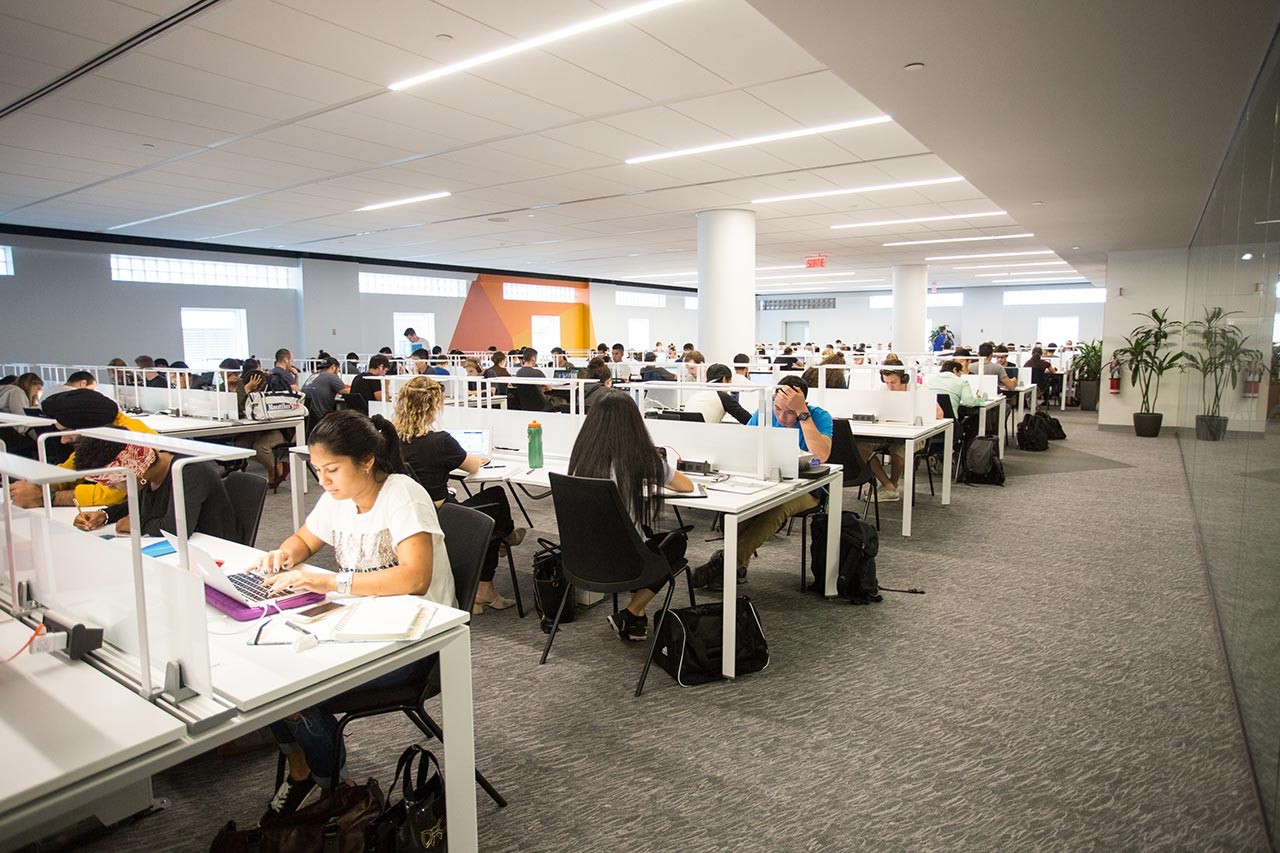4.3 million Spectrum downloads, a university press and an author fund

Open Access Week takes place from October 23 to 27, but there’s plenty of evidence to suggest that Concordia Library remains committed to the global initiative each and every day of the year.
What is open access? Essentially, it’s a movement to provide unrestricted, free online access to peer-reviewed scholarly research. This helps authors and researchers worldwide benefit from important knowledge production, cost and barrier-free.
Open access (or OA for short) is based on the premise that curiosity and a desire to learn should be the only requirements needed to get at the knowledge necessary to help move society forward.
“With much of the research carried out by universities and in government financed by public funds, OA provides taxpayers with access to the research that they funded,” says Danielle Dennie, Concordia’s librarian responsible for scholarly communications.
“Unfettered access to these results makes it easier to produce new research, which is important for the advancement of science.”
Studies OA increases the visibility and impact of research. Open-access articles are downloaded and cited more frequently than articles from subscription journals.
“Open access is yet another way that Concordia is working to double its research, one of the nine strategic directions,” says Guylaine Beaudry vice-provost, Digital Strategy and university librarian.
Here are three important ways Concordia supports open access:
The Concordia University Press
In fall 2016, Concordia launched its new scholarly press, thanks in part to the Birks Family Foundation and Brian and Carolyn Neysmith.
The non-profit publisher of peer-reviewed books is founded on the open-access model and reaffirms the university's mission to enrich the world through the dissemination of research.
With an editorial focus on themes of life, knowledge and creation in the fine arts, humanities and social sciences, the press seeks to innovate and help transform society by removing barriers to important research.
An arm’s-length organization of Concordia, the press is in the process of building its inaugural catalogue of books and series. By the end of its first half-decade, it plans to publish 10 books a year, including some titles in French.
In May 2017, the press established a partnership with UBC Press that will see the established academic publisher assume worldwide responsibility for marketing and distribution of Concordia University Press’s English-language print books.
Before the end of 2017, the press looks forward to hiring an editorial and production coordinator, who will be responsible for important aspects of its ongoing work.
An internship program for Concordia graduate students is being planned for 2018. The press is also active on social media. News and updates can be found on Twitter @ConcordiaPress.
“The last 12 months have been immensely productive and rewarding,” says Geoffrey Little, editor-in-chief of Concordia University Press.
“We’ve worked hard to cultivate strong relationships with potential authors and series editors and we look forward to announcing our first list in 2018.”
Little adds that the press exhibited at the 2017 Congress of the Humanities and Social Sciences in Toronto and participated in panels both there and at the Universities Art Association of Canada 2017 meeting in Banff.
“Our editorial board has become a strong group of advocates and champions,” he says. “And we’ve received important support from colleagues in scholarly publishing communities. The next year should be equally, if not more, exciting and challenging.”
Spectrum’s 4.3 million downloads
Spectrum, the university’s web-based research repository, enables faculty, researchers and students to upload their published work.
It preserves research created at Concordia, and in the spirit of open access, enables the public and researchers worldwide to download its entire contents for free.
Fast facts on Spectrum (as of September 21, 2017)
- Since Spectrum’s 2009 launch, more than 4,363,212 documents have been downloaded.
- In the last year, the most downloaded author was Michel Laroche, a professor in the John Molson School of Business. One of his articles on social media and brand loyalty was the most downloaded item, accessed 6,381 times.
- The most downloaded thesis in the last year was a PhD dissertation written in 2002 by Ahmed Hassanein about highway construction planning, with 2,129 downloads.
- The Faculty of Arts and Science has deposited the most documents (5,653) since 2009.
In the last year, Concordia faculties deposited the following number of items (mostly articles and theses):
- The 10 countries with the highest number of downloads in the last year are:
- United States (96,077)
- Germany (94,833)
- Canada (56,081)
- China (56,003)
- Great Britain (33,179)
- India (12,863)
- France (9,180)
- Japan (7,470)
- Russia (6,045)
- Australia (5,712)
Concordia’s Open Access Author Fund
The Concordia Library and the Office of Research established the Concordia Open Access Author Fund in 2011.
The initiative reimburses university authors when they are charged author processing fees to publish monographs, monograph chapters or peer-reviewed journal articles in eligible open access journals. Some processing fees run as high as $5,000.
It’s open to full- and part-time Concordia faculty and staff members, as well as all currently registered graduate students and postdoctoral fellows affiliated with the university.
Between November 2011 and April 2017, the fund reimbursed 102 Concordia researchers — including faculty, librarians, postdocs and grad students — for a total of $162,383.09.
Over the course of the 2016-17 fiscal year, the fund reimbursed 18 Concordia researchers from nine separate departments for a total of $36,587.50, with the average reimbursement for an article processing charge being $2,032.64.
Find out more about open access at Concordia.


